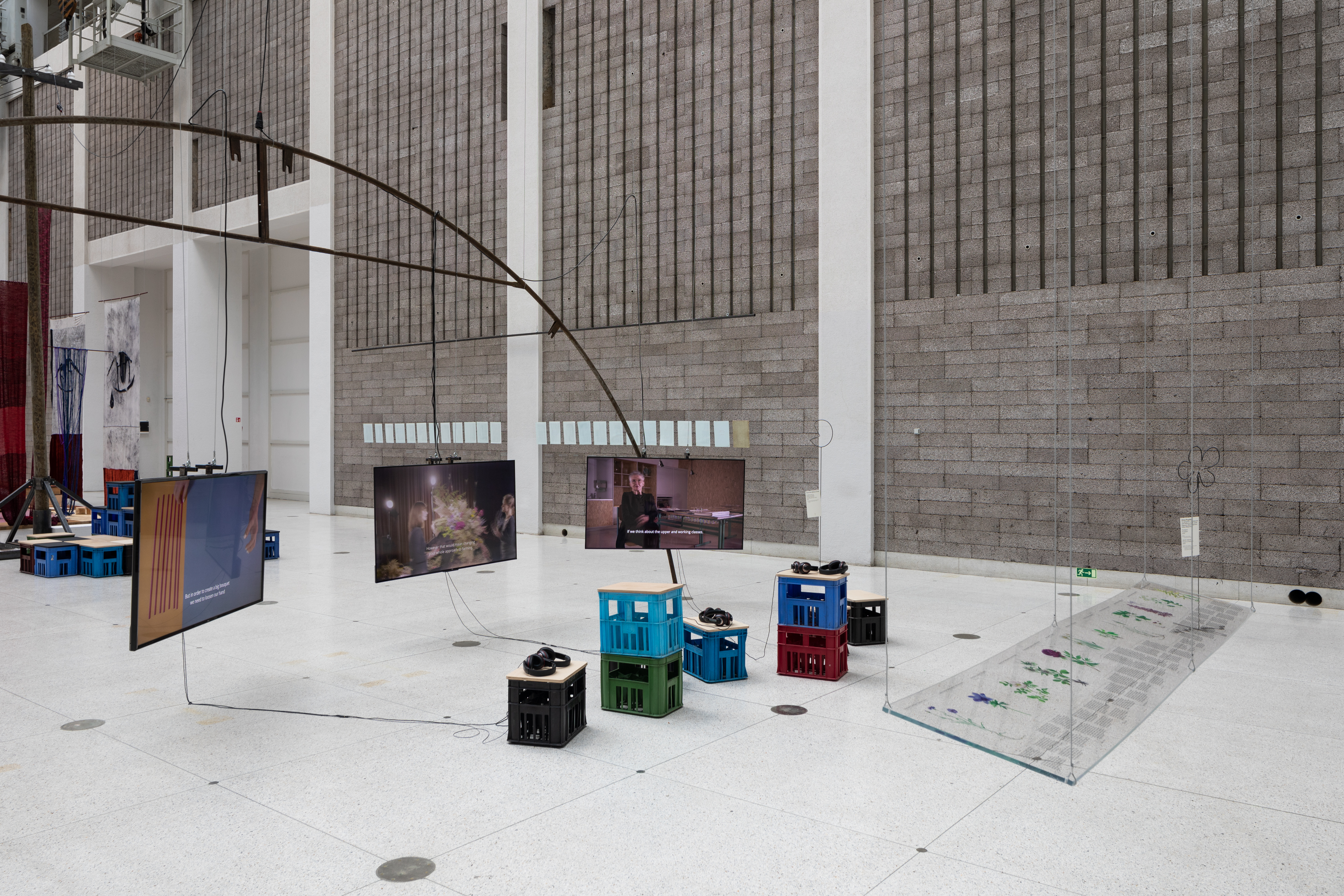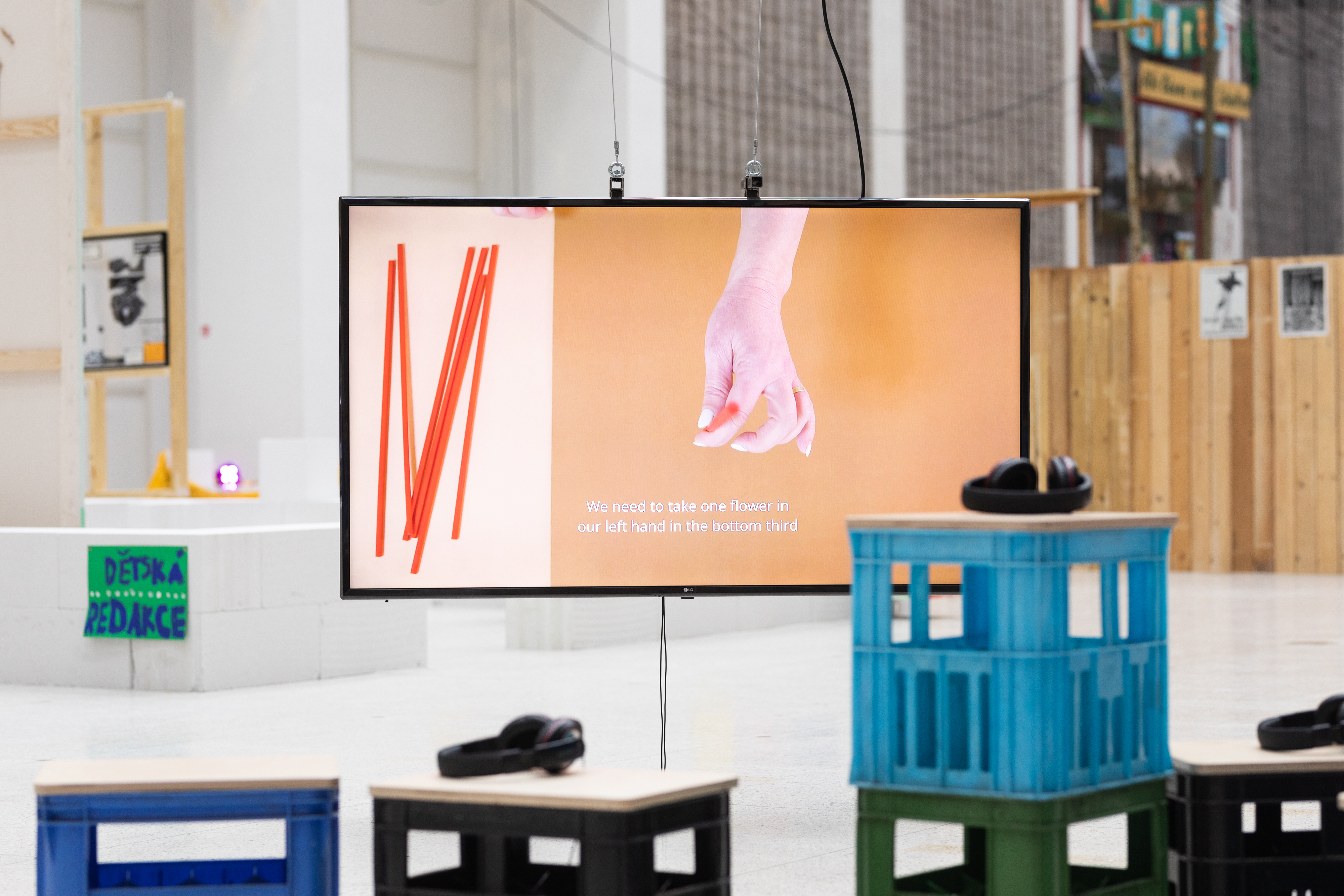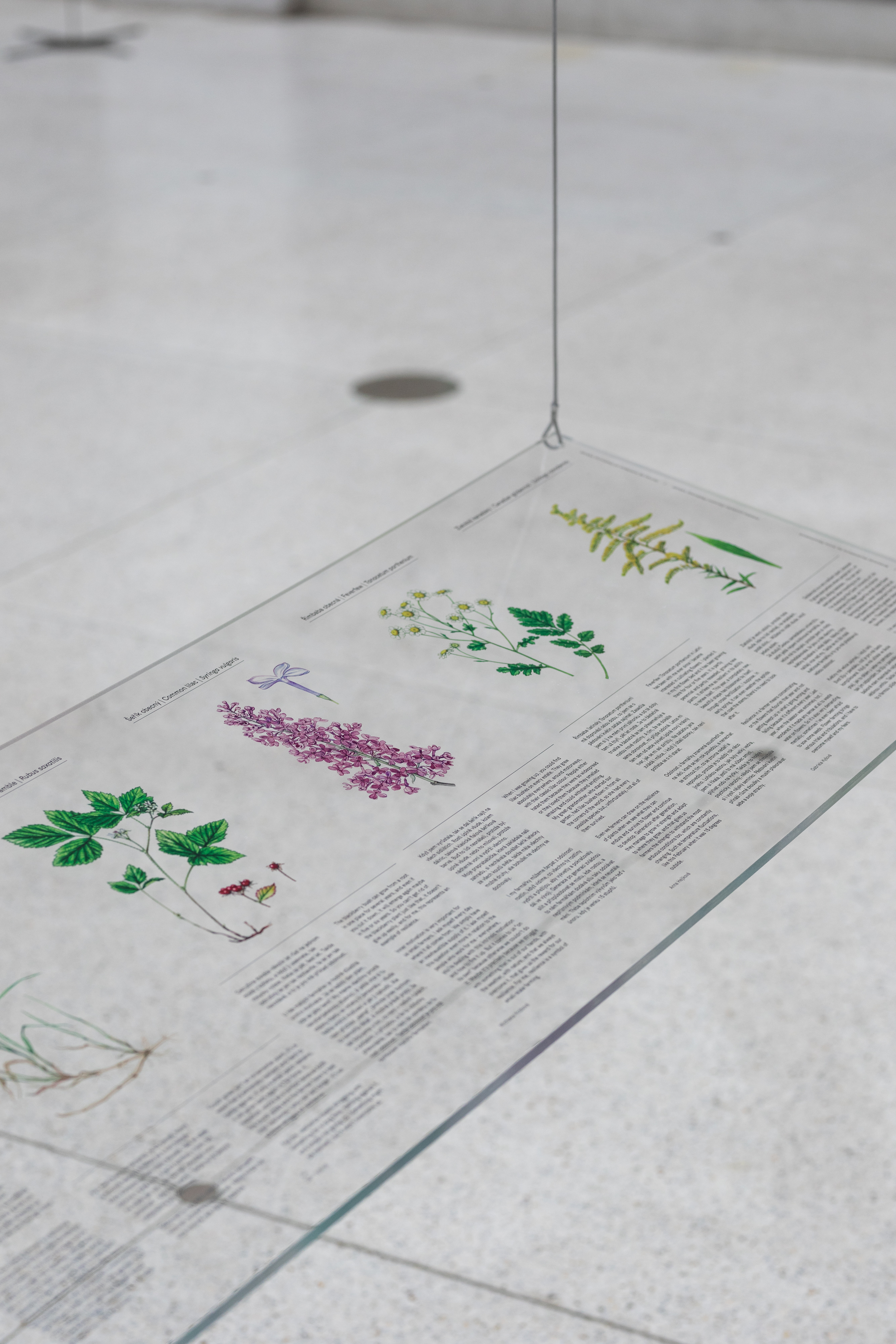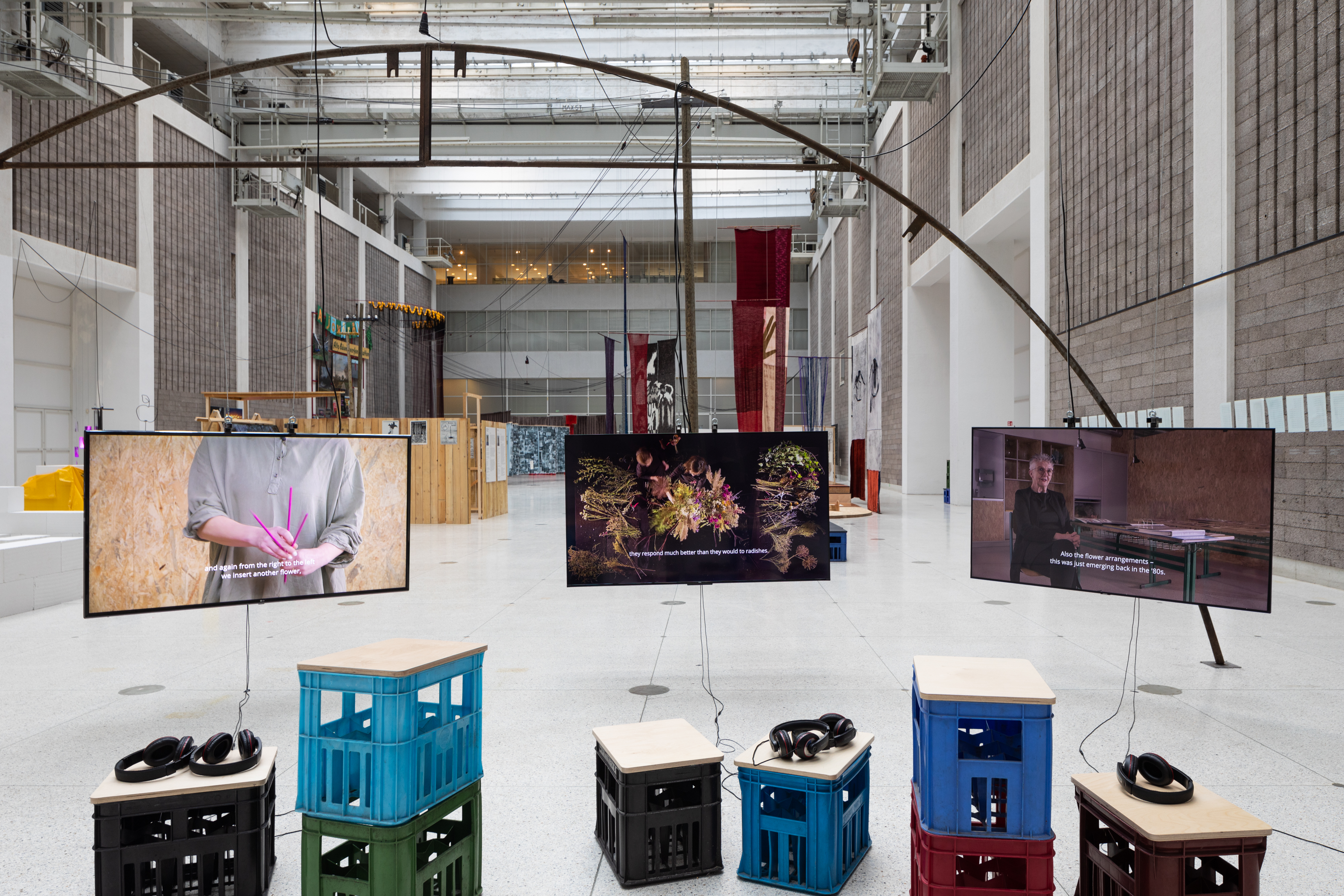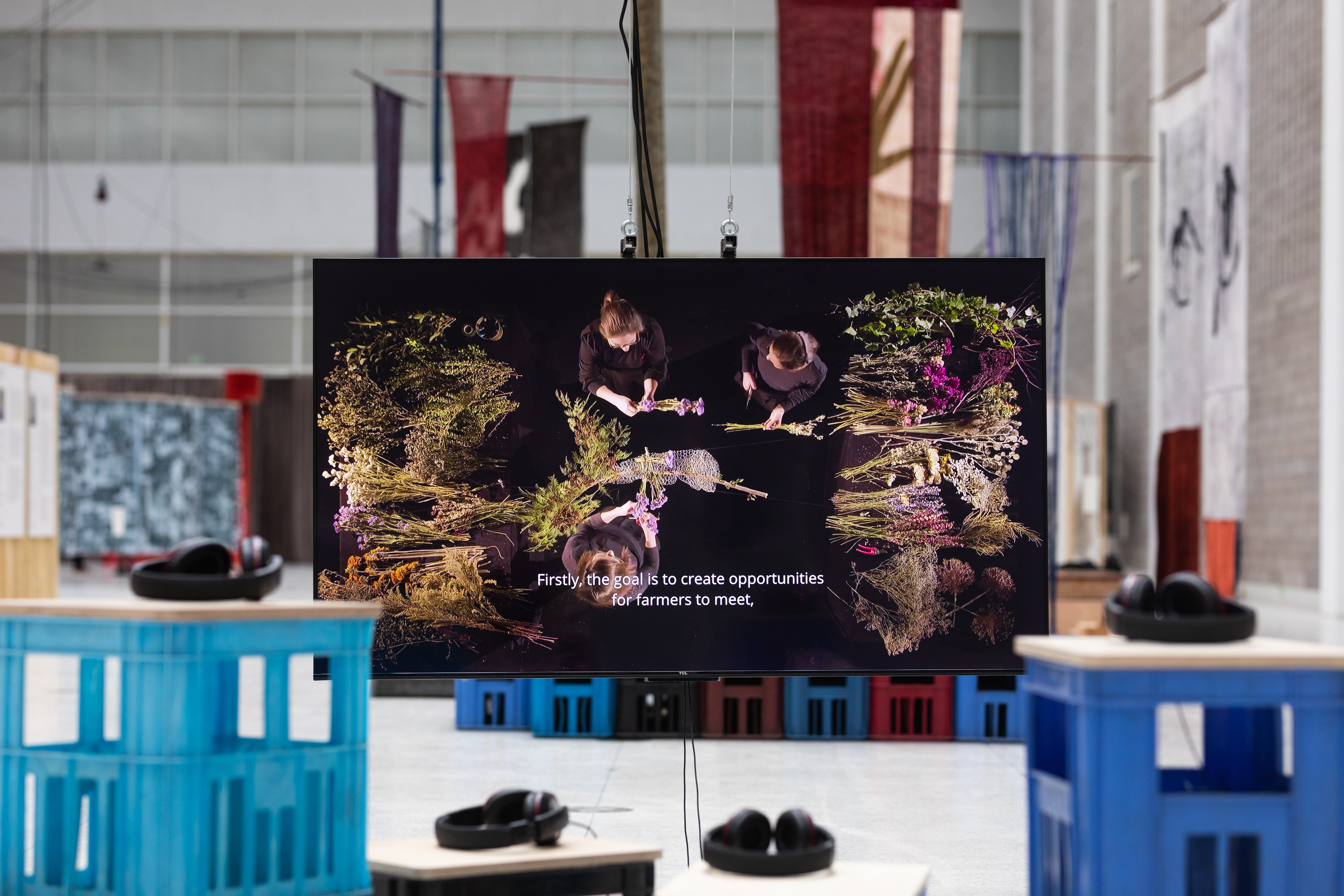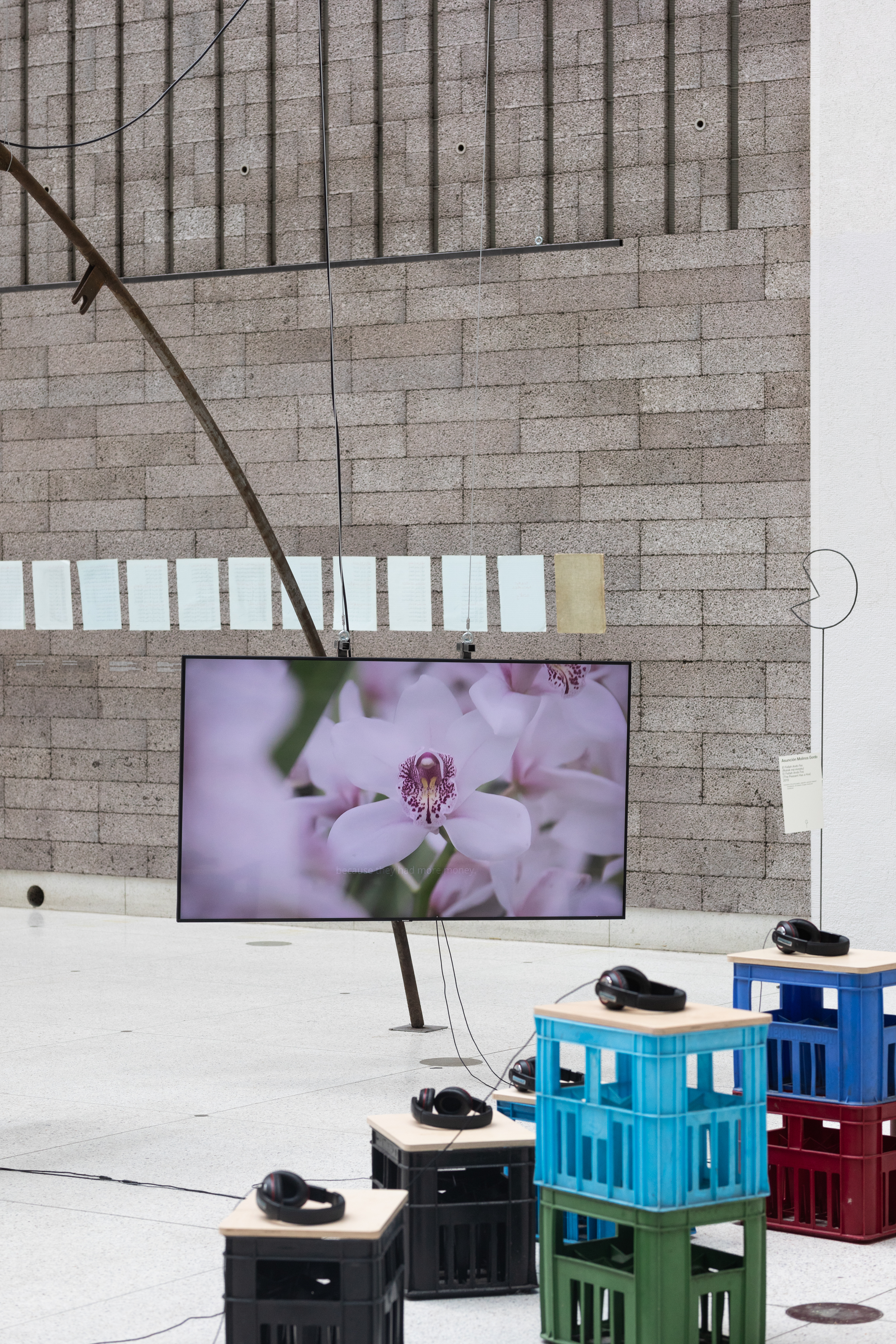Alicja Rogalska
Work exhibited in the Trade Fair Palace:
Flowers of Resilience / 2024 / installation / print on plexiglass (200 cm × 42 cm) / illustrations by Anna Skoumalová / text by members of Platforma Výkvět / graphic design by Katarina Šević
Propagate / 2024 / 3-channel video installation / 4K video, sound, color (dimensions and duration variable) / in collaboration with Platforma Výkvět, Jarmila Pejpalová, Marie Weigrichtová and Eliška Weigrichtová / courtesy of the artist
* Commissioned by the Biennale Matter of Art Prague.
Flowers of Resilience; Propagate, 2024, Biennale Matter of Art 2024, National Gallery Prague – Trade Fair Palace (c) Jonáš Verešpej
Alicja Rogalska (lives in Berlin, b. Ostrolenka (Poland), 1979) works together with people from very different backgrounds and fields. She creates situations, performances and videos that make their voices and stories heard. In her new project for Matter of Art, she collaborated with flower farmers and florists. We might not expect flowers to play an important role in rural change. Yet, they have a lot of stories to tell about how farming is changing, the fight for more ecological futures, and even how our ideas of a good life and beauty are evolving. Flower farming and floristry is done mostly by women, so Alicja decided to focus on their experience. She collaborated with Platforma Výkvět, an initiative of ecological flower farmers. They are against the big flower business worldwide and fight for flowers to be grown locally in the Czech Republic and Slovakia. In the video, they talk about their struggle to balance work and life, and discuss feeling burnt out and tired. But they also talk about their love for flowers and dedication to making agriculture more ecological. This keeps them going. Výkvět makes them more resilient; it helps them withstand difficulties. With florists from different generations – Jarmila Pejpalová, Eliška and Marie Weigrichtová – Alicja looks at how their work has changed. From Jarmila’s travels to international flower exhibitions during the socialist era, to the hand movements that Eliška and Marie teach their students when making bouquets. What role do flowers play in our everyday lives and societies? Alicja Rogalska sees flowers as powerful political symbols, connected to progressive social movements like feminism or socialism. What future movements would we like to see blossoming?
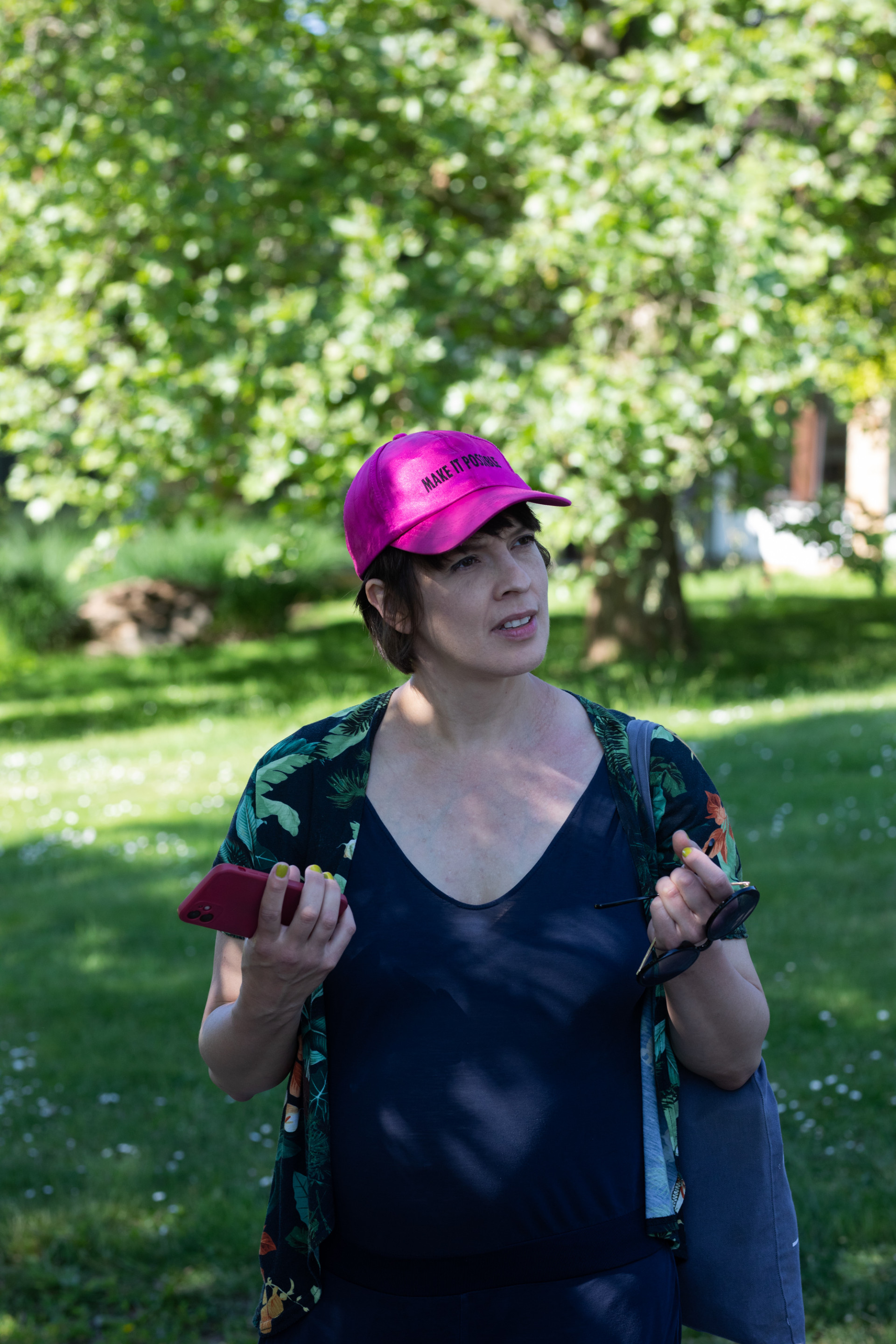
(c) Jonáš Verešpej
Alicja Rogalska is a Polish-British interdisciplinary artist who is based in Berlin but works internationally. Her practice is research-led and focuses on social structures and the political subtext of the everyday. She mostly works in specific contexts, making situations, performances, videos, and installations in collaboration with other people in order to collectively search for emancipatory ideas for the future.
She recently presented her work at Kunsthalle Recklinghausen (2024), Biennial Videobrasil (São Paulo, 2023–24), New Contemporaries (London & Blackpool, 2023–24), Biennale Jogja (Yogyakarta, 2023), Urbane Künste Ruhr (Essen, 2023), Scherben / Berlin Art Prize (2022, main prize), Manifesta 14 Prishtina (2022), Temporary Gallery (2021–22), Kunsthalle Wien (2020–21) and OFF-Biennale Budapest (2020–21).
Rogalska is currently a PhD researcher in the Art Department at Goldsmiths College, was a fellow of the DAAD Artists-in-Berlin program in 2020–21, and she has been an artist in residence at the Museum of Modern and Contemporary Art in Seoul (2023), the Faculty of Social Sciences at Essex University (2019–22), the City of Women Festival (Ljubljana, 2019), and the Stuart Hall Library (London, 2019).
Alicja Rogalska completed artist residency in Prague in 2023 and 2024, as part of the Biennale Matter of Art 2024, which was funded by the European Union – NextGenerationEU.
